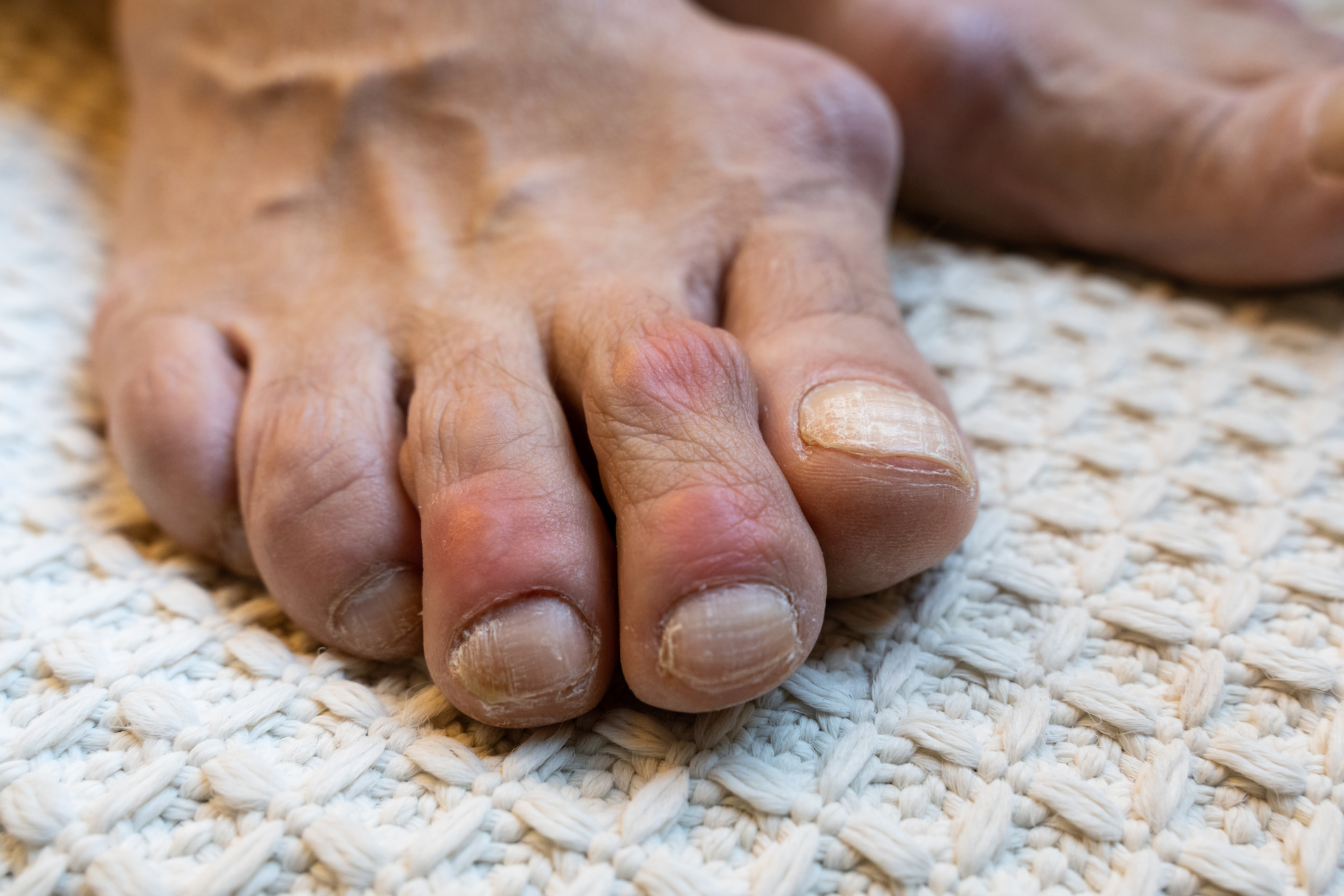
When you have gout, it’s important to make dietary choices that can help manage the condition and reduce the frequency and severity of gout attacks. Gout is a form of arthritis caused by a buildup of uric acid crystals in the joints, resulting in pain and inflammation. Here are some dietary guidelines to consider when you have gout:
- Stay hydrated: Drink plenty of water throughout the day to help flush out uric acid from your system.
- Limit purine-rich foods: Purines are substances that break down into uric acid in the body. Limit your intake of high-purine foods such as organ meats (liver, kidneys), red meat (beef, lamb), seafood (shellfish, anchovies, sardines), and certain vegetables (asparagus, spinach, mushrooms). However, it’s not necessary to completely eliminate these foods, but moderation is key.
- Choose low-purine protein sources: Opt for low-fat dairy products, such as milk, yogurt, and cheese, as they have been shown to lower the risk of gout. Plant-based protein sources like legumes (beans, lentils), tofu, and quinoa can also be good options.
- Include complex carbohydrates: Foods rich in complex carbohydrates, such as whole grains, fruits, and vegetables, can help lower uric acid levels. They provide fiber and other essential nutrients while being low in purines.
- Moderate your alcohol consumption: Alcohol, particularly beer, can increase uric acid levels and trigger gout attacks. Limit your alcohol intake or avoid it altogether, especially during active gout flare-ups.
- Limit fructose-rich foods: High-fructose corn syrup and excessive consumption of foods and beverages sweetened with fructose can raise uric acid levels. Avoid sugary drinks, fruit juices, and limit your consumption of sweetened snacks and desserts.
- Consider cherries and cherry juice: Some studies suggest that cherries and cherry juice may help lower uric acid levels and reduce gout flare-ups. Including fresh cherries or drinking cherry juice may be beneficial, but individual results may vary.
- Maintain a healthy weight: Being overweight or obese increases the risk of gout and worsens its symptoms. Aim to achieve and maintain a healthy weight through a combination of a balanced diet and regular exercise.
It’s essential to consult with a healthcare professional or a registered dietitian who can provide personalized advice and guidance based on your specific situation and medical history. They can help you create a comprehensive diet plan that aligns with your dietary preferences and gout management needs.
See More on Video

The End Of GOUT Program™ By Shelly Manning The program, End of Gout, provides a diet set up to handle your gout. It is a therapy regimen for gout sufferers. It incorporates the most efficient techniques and approaches to be implemented in your daily life to heal and control gout through the source.